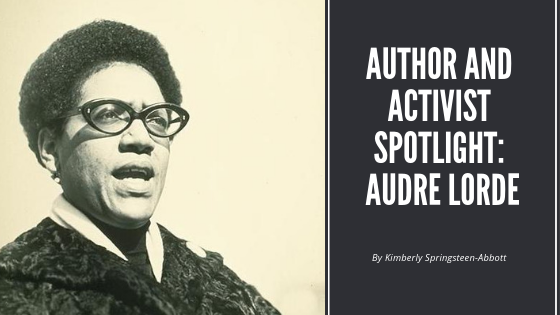Audre Lorde was an award-winning poet and a versatile, prolific intellectual. In just 58 short years, she made a huge impact on the worlds of academia, literature and politics. Lorde was never hampered by boundaries. Her activism encompassed her local community, but stretched as far away as South Africa.
Lorde’s activism started young, and although she attended protests and rallies a good portion of her activism permeated the mantra of her writing. In school, Lorde took to poetry. In poems that she memorized, Lorde found a way to express her own feelings. Her own writing resonated with people in a similar way.
Poetry was not the only type of writing Audre Lorde excelled at. Her essays, particularly, “The Master’s Tools Will Not Dismantle the Master’s House,” have become cornerstones for progressive scholars and activists. Even today, they retain their power and resonate with readers, and provide the framework for modern feminist thought and intersectional models of feminism.
Audre Lorde’s background as the daughter of stern West Indian parents set her apart from many other feminists engaging in social activism at the time. She was always sensitive to the reality of power differentials, even among activists on the political left. Though sisterhood was paramount to Lorde, she was also a realist and at the end of the day stood most strongly on her own, self-created, platform..
Health issues early in life forced Lorde to confront the medical establishment, too. Her book The Cancer Journals saw her confronting her own mortality. She also looked at the relationship between patriarchy and medicine. For example, Lorde opted not to wear a prosthesis after mastectomy surgery. She wanted to be a model of a survivor, not pretend the cancer had never happened, and in that thwart traditional standards of beauty.
Lorde’s activism in the 1960s and 1970s was often focused on feminist causes in the United States, and particularly a mode of feminism that interacted with sexuality and race. During the 1980s, however, Lorde turned her attention to the wider world. The South African situation under apartheid was a particular concern for Audre Lorde. She founded Sisterhood in Support of Sisters in South Africa to advocate for them.
Sadly, Lorde passed in 1992, before apartheid came to an end. She was never able to see her much-loved sisters achieve freedom, but nonetheless had an incredible impact on their success. Her writing will continue to be a model for activists to come, and is still being used in university settings to educate students on society, politics, and activism.

